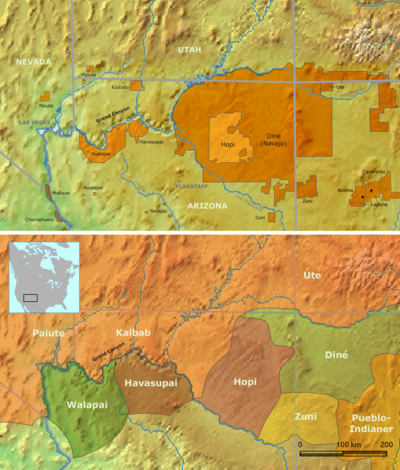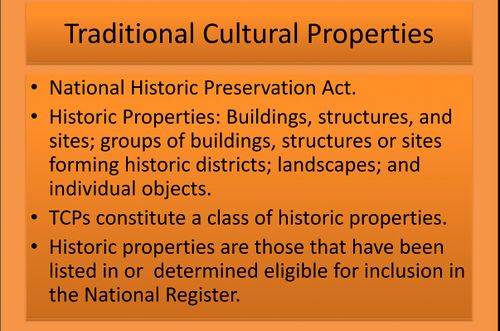Difference between revisions of "Portal:GCDAMP Tribal Perspectives"
From Glen Canyon Dam AMP
Cellsworth (Talk | contribs) |
Cellsworth (Talk | contribs) |
||
| Line 1: | Line 1: | ||
== TRIBAL CONNECTIONS TO Grand Canyon National Park and/or Glen Canyon National Recreation Area == | == TRIBAL CONNECTIONS TO Grand Canyon National Park and/or Glen Canyon National Recreation Area == | ||
| − | |||
| − | |||
| − | |||
The following tribes are traditionally associated with the area: | The following tribes are traditionally associated with the area: | ||
*"^" indicates AMP Members (See also NPS CFMP-EA_pg 123) | *"^" indicates AMP Members (See also NPS CFMP-EA_pg 123) | ||
| Line 17: | Line 14: | ||
# [http://www.utemountainutetribe.com/ Ute Mountain Ute Tribe] | # [http://www.utemountainutetribe.com/ Ute Mountain Ute Tribe] | ||
# [http://yavapai-apache.org/ Yavapai-Apache Nation] | # [http://yavapai-apache.org/ Yavapai-Apache Nation] | ||
| + | <Span>[[File:OWDR-Grand-Canyon-Indians.png|400px]]</Span> | ||
== PERSPECTIVES == | == PERSPECTIVES == | ||
Revision as of 15:43, 12 August 2016
TRIBAL CONNECTIONS TO Grand Canyon National Park and/or Glen Canyon National Recreation Area
The following tribes are traditionally associated with the area:
- "^" indicates AMP Members (See also NPS CFMP-EA_pg 123)
- Havasupai Tribe
- Hopi Tribe ^
- Hualapai Tribe ^
- Kaibab Band of Paiute Indians & Paiute Indian Tribe of Utah = Southern Paiute Consortium ^
- Las Vegas Paiute Tribe
- Moapa Band of Paiute Indians
- Navajo Nation ^
- Pueblo of Zuni ^
- San Juan Southern Paiute Tribe
- Ute Mountain Ute Tribe
- Yavapai-Apache Nation
PERSPECTIVES
- Pueblo of Zuni Perspectives
- Managing Agencies Perspective
- Taking of life (fish or other) in the Colorado River, with some areas (LCR confluence) being especially sensitive from the tribal perspective. (NPS-CFMPEA_pg 124)
- NEPA and Silencing of Native American Worldview; presentation by Kurt Dongonske to the National Association of Environmental Professionals 2013
- Here and There- The effects of upriver dams on indigenous peoples by Benedict Colombi 2014
- NPS Link on Native American Perspectives and river trip orientation videos
- Land boundary concerns: Some interpretations of federal law hold that the Grand Canyon National Park boundary is at the high water mark of the river. Others hold that it stretches above the rim of the canyon. The issue has never been settled in court.
- Question: Are there some areas along the Colorado River that are considered by the tribes as "off-limits" to non-Indians? Answer: Yes.
- DOI POLICY: Executive Order 13007 states that a federal agency shall accommodate access to and ceremonial use of Indian sacred sites by Indian religious practitioners and that the federal agency shall avoid adversely affecting the physical integrity of such sacred sites.

